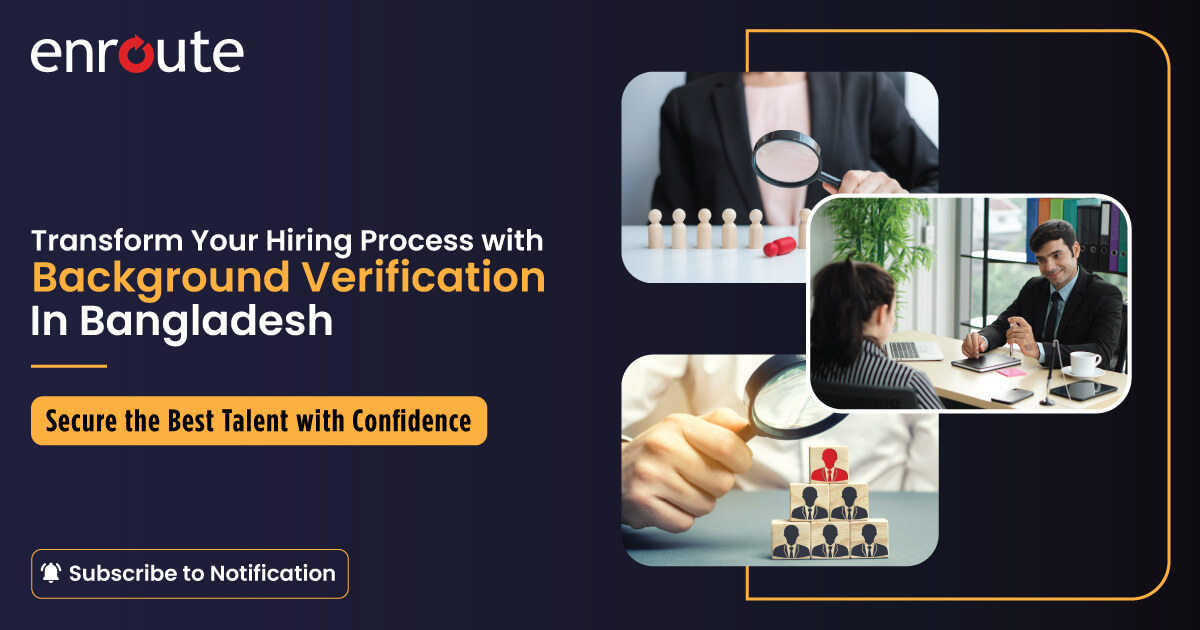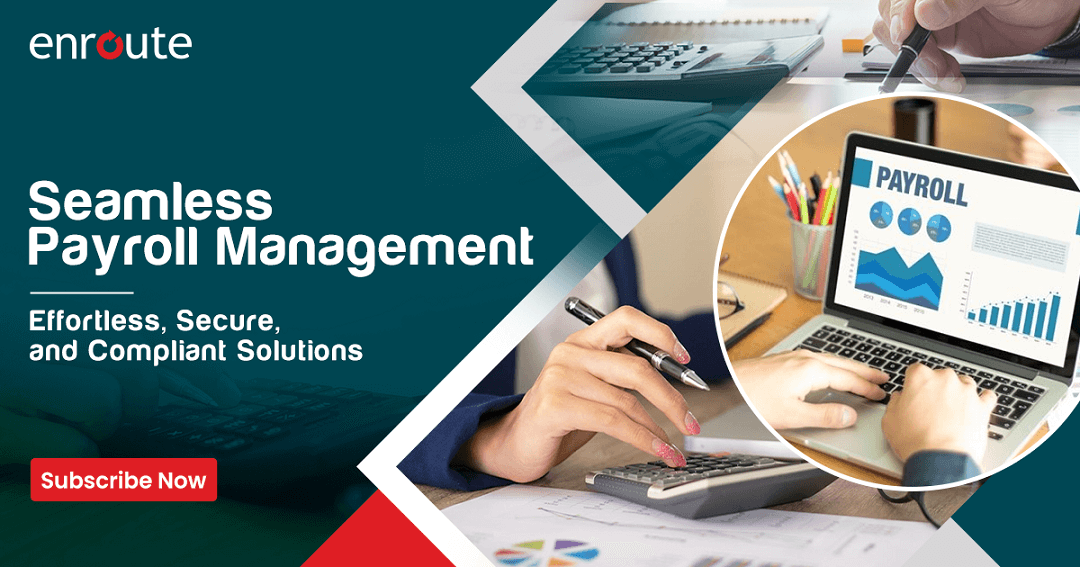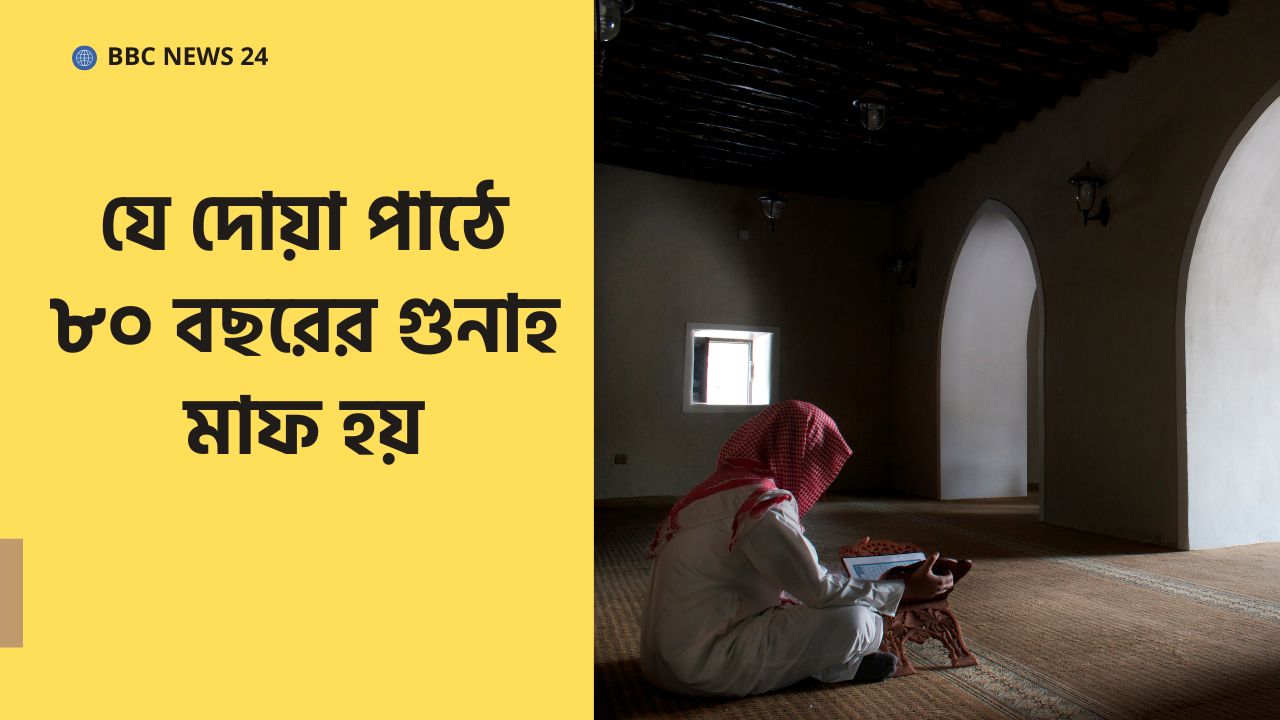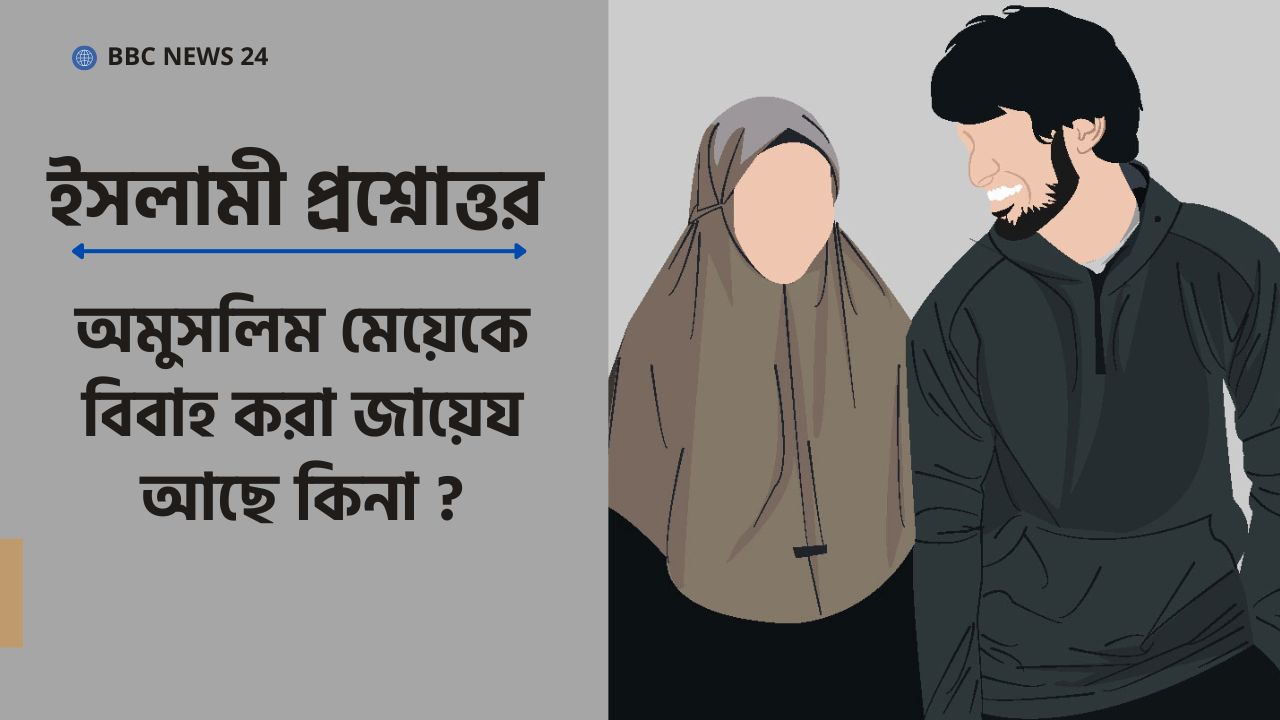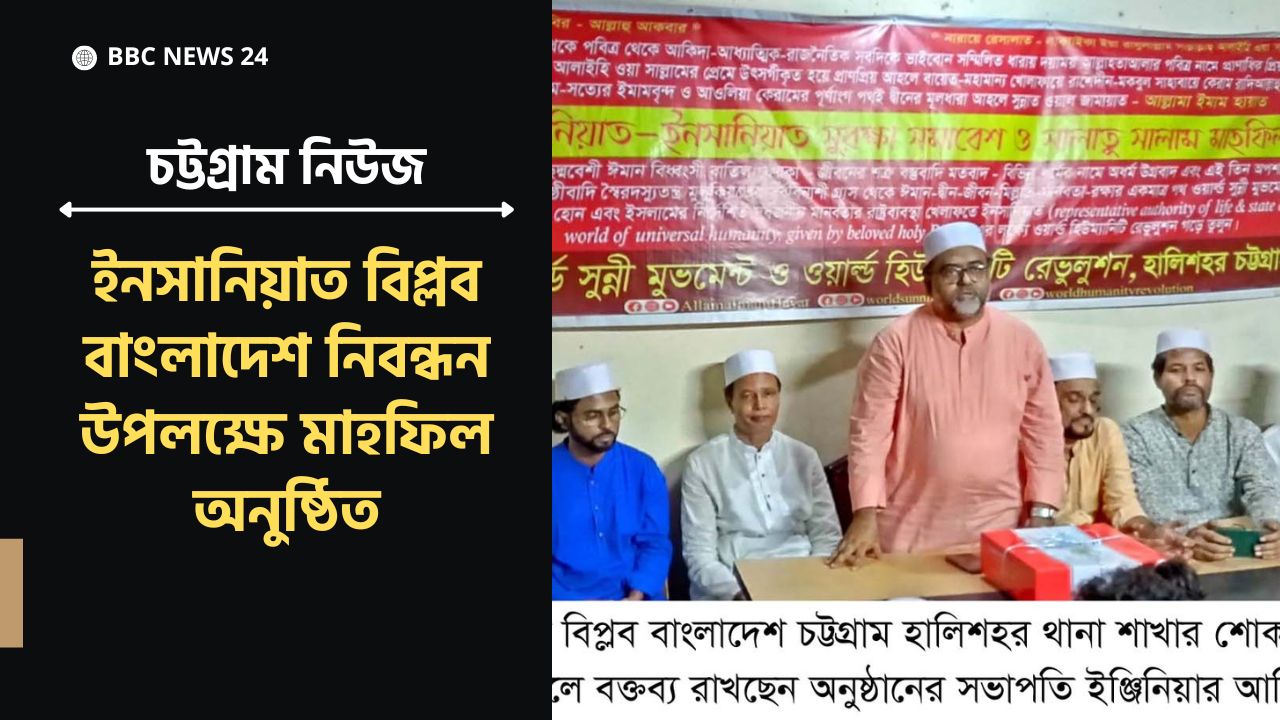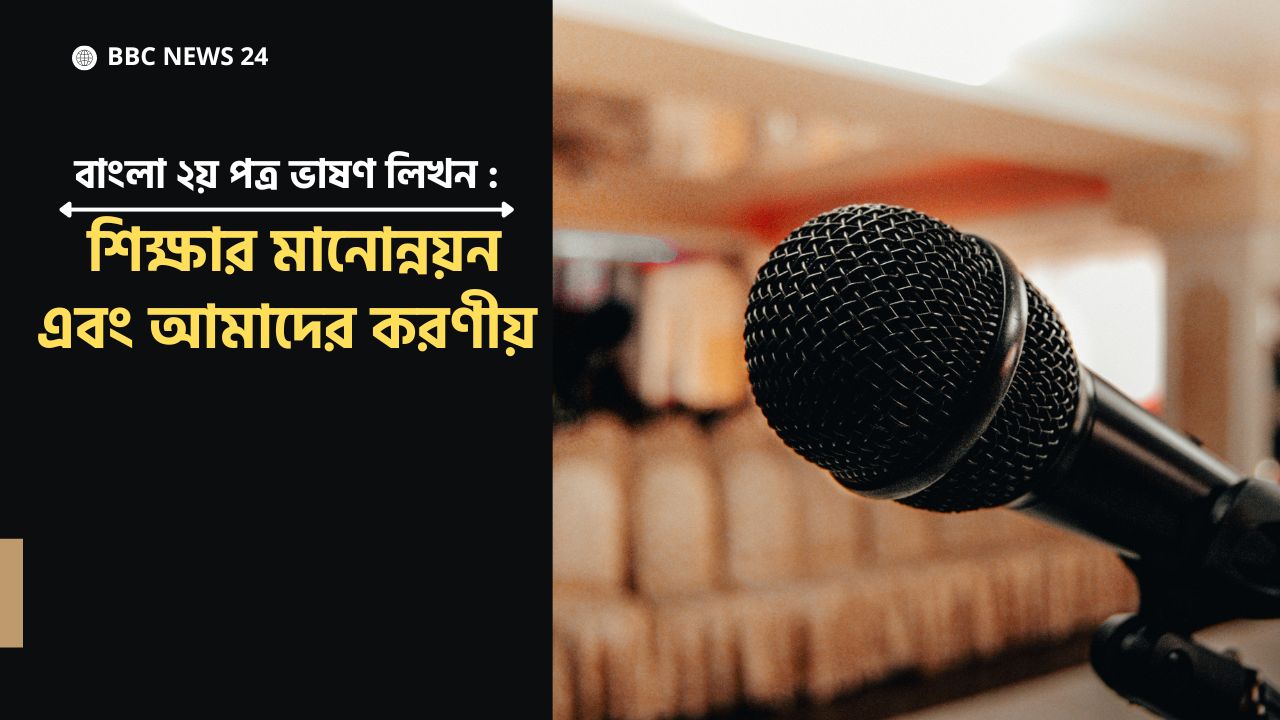Key Highlights
Checking someone’s background is key to making smart choices when hiring and keeping the workplace safe. This check looks into a person’s job history, any criminal records they might have, their education qualifications, and where they live. Doing these checks helps lower the risk of hiring the wrong person, keeps your company’s good name intact, and ensures you hire quality people.
The steps in this process include setting up rules for conducting background checks, picking a reliable company to help with these checks, knowing what kinds of things you can check for each candidate, like employment history or criminal records, initiating the verification process itself by starting those checks on candidates, and carefully reviewing what comes back from those checks.
Certain laws control how these background verifications should be done in Bangladesh. Employers there need to know about these relevant laws so that everything is above board during their thorough background-checking processes, which ultimately leads them to better hiring decisions.
Introduction
When companies are looking to hire new people, checking the background of each candidate is a key step. This means they look into the person’s past jobs, criminal history, education qualifications, and where they live to make sure everything matches what was said. With more folks working from home these days, it’s even more critical to do this check well.
Going through someone’s background can take some time since there are quite a few things that need checking. However, it’s an important part of making sure only the best join the team—keeping everyone at work safe, maintaining a good company image, and ensuring high-quality hires. By doing deep dives into candidates’ histories, businesses can spot any warning signs or inconsistencies that might be cause for concern.
In Bangladesh specifically, laws guide employers in conducting these checks so everything stays above board and fair for everyone involved. This guide aims to explain why it’s crucial to verify backgrounds thoroughly before hiring anyone and how exactly you can go about this process legally in Bangladesh while catching potential risks early on during your hiring decisions.
What is Background Verification?
Background verification, or background check, is all about making sure the details someone shares when they’re trying to get a job are true. This means looking into their work history, any run-ins with the law, where they went to school and what degrees they have, and even confirming where they live.
When doing a background check on someone’s work experience, employers look at previous jobs held by the candidate, including roles played at these jobs, along with how long each job lasted. Sometimes, this even includes finding out how much money was made in those positions.
Checking for criminal records is another big part of this process because it shows if there were any arrests or legal issues faced by the person applying for the job.
Verifying education helps confirm that candidates actually graduated from schools listed on their resumes and possess claimed qualifications, while checking addresses makes sure applicants really live where they say they do, which also proves whether or not an applicant can legally work in that country.
Employers carry out these checks before hiring anyone to make smart choices during recruitment and avoid problems later down the line. By digging deep through thorough background checks like these mentioned above – employment history review included -companies can spot warning signs early on, such as inconsistencies in information provided by potential hires indicating possible future issues (these are known as red flags).
Doing so ensures safer workplaces, maintains a good company reputation over time improves the overall quality of recruits coming on board, especially important within sectors demanding high levels of trustworthiness among staff members like banking, healthcare security fields, etcetera.
Why is Background Verification Important?
Checking someone’s background before hiring them is really important for a bunch of reasons. For starters, it helps make sure the workplace is safe by spotting any warning signs or potential risks in someone’s past. This way, companies can steer clear of legal trouble from careless hiring and keep everyone at work safe.
On top of that, this kind of check makes sure businesses pick the right people for their teams. It lets them make smart choices and dodge the bullet of ending up with employees who could be a better fit.
Also, doing these checks keeps a company’s reputation solid by avoiding actions that could look bad and catching any warning signs early on that might damage how people see the business. Lastly, it improves how well companies hire by making sure candidates actually have the experience and skills they say they do.
Ensuring workplace safety
Businesses must ensure workplace safety and background checks are a key part of this. When companies carefully examine someone’s past, they can spot any warning signs or dangers in their history that might be a problem for the company’s safety. This means determining whether someone has done something serious wrong before, like violence or cheating, which could show they might act badly or hurt others at work.
With concerns about being sued for not hiring carefully enough hanging over them, companies see these checks as a way to lower that danger. If an employer ends up hiring someone who turns out to be dangerous to others, they could get in big trouble legally. So, by checking people’s backgrounds well, businesses can show they’ve done what’s needed to keep everyone safe.
Making sure everyone working there has been checked out properly first helps create a place where employees feel secure and protected. Not only does this help keep workers from harm, but it also keeps the business away from legal issues and losing money.
Mitigating hiring risks
Making sure you’re picking the right person for a job is super important because getting it wrong can really hurt a company. We’re talking about losing money, folks not working as hard, and even making people think less of your business. To avoid these problems, doing deep dives into someone’s past work experience, if they’ve had any run-ins with the law, and what kind of schooling they’ve got under their belt can be a big help.
With every step in bringing someone new on board, checking out their background is key. Looking closely at where they’ve worked before, confirming that they actually studied where they say they did, and seeing if there are any legal issues you should know about helps make sure no surprises pop up later on. These detailed checks give companies the full picture of who might be joining their team—pointing out any warning signs or bits that don’t add up.
Careful screening for things like employment history during this part of hiring somebody new to join your crew ensures businesses dodge those bad hires that could drag them down. This way, companies keep building teams everyone can count on.
Protecting company reputation
Keeping a company’s good name safe is super important when checking someone’s background before hiring them. How people see a company really matters for its success and growth. If a company ends up hiring folks with bad records or who have done wrong things in the past, it could make the company look bad.
Doing deep checks on someone’s background helps keep the company’s reputation shiny by spotting any warning signs or things that don’t add up with what they say about themselves. This means looking into if they’ve ever broken the law, making sure their work history adds up, and confirming their education claims are true. By doing these checks, companies can feel confident they’re picking people who are clean slate-wise and fit right for the job.
Spotting these warning signs early through thorough background checks lets companies act wisely and avoid hiring anyone who might damage their good name. Keeping this reputation intact means customers, workers, and everyone else involved keep believing in them.
Enhancing hiring quality
Checking someone’s background is a major goal for improving the quality of hires. Businesses must make smart choices about who they hire if they want to succeed. Doing deep dives into people’s pasts helps companies be sure they’re bringing on board people who are right for the job.
With background verification, companies look into where a candidate has worked before, check if their education claims are true, and see if they have any criminal history. These steps let businesses determine whether someone has the experience, skills, and qualifications that match what they need. Confirming where someone has worked before is super important in this mix because it verifies their previous roles, how long they were there, and what responsibilities they had.
By focusing on improving hiring through these checks, businesses can create a strong and dependable team. Bringing in the right people affects many things, like how well the company does its work and even how others outside see it as an organization or business entity. Deep checks help firms make choices about hiring with all the facts in hand, which leads to better performance for everyone working there.
Step-by-Step Guide to Conducting Background Verification Process in Bangladesh
To make sure you’re hiring the right people in Bangladesh, it’s important to follow a few steps that keep things legal and thorough. Here’s how you can do background checks the right way:
Step 1: Establishing a Background Check Policy
Creating a policy for background checks is the initial step towards carrying out effective ones in Bangladesh. This policy acts as a guide for employers, making sure that the process of checking backgrounds is done consistently, within legal bounds, and fairly. When you’re putting together a background check policy, consider these important points:
- Start by deciding what kinds of checks are needed: Think about which types of background investigations make sense for your field and the roles you’re hiring for. You might need to look into criminal records, confirm educational histories, past job experiences or even verify addresses.
- Please get to know the laws and rules that apply: Your method for conducting background examinations must follow all relevant laws in Bangladesh. This means knowing how candidates’ rights work and what’s required to get their permission and share information with them.
- Put together a procedure for screening: Lay out each step involved in doing background checks clearly. This includes gathering necessary details from applicants, how you’ll verify this information, plus how results will be analyzed and understood.
Setting up such a policy on checking backgrounds before employment starts ensures everything runs smoothly according to the law while being fair across the board.
Step 2: Selecting the Right Background Check Service Provider
When it comes to doing thorough background checks in Bangladesh, picking the right service provider is key. Here’s what you should think about when making your choice:
- Look into their track record and how dependable they are: It’s important to go with a service provider known for being reliable and accurate in carrying out background checks. Make sure they have a good reputation by reading what other clients have said about them.
- With laws in mind: choose a provider who knows the ins and outs of Bangladesh’s background check laws. This ensures that all the checks are done properly and follow all necessary legal guidelines.
- What services they offer: Check out what kinds of checks the provider can do, like looking up criminal records, confirming someone’s education history, or verifying past employment details. Think about what specific things you need to be checked, and pick a provider who can cover those areas.
- How well they work with HR systems: See if the service provider offers options that mesh well with your company’s HR procedures. This kind of integration can make running background checks smoother and help your HR team be more efficient.
Choosing carefully means employers will get precise, trustworthy results from their background check process while adhering to relevant rules.
Step 3: Understanding the Types of Background Checks
Getting to know the different kinds of background checks is key when you’re looking into someone’s past in Bangladesh. Let’s go over a few common ones:
- With a criminal background check: we dig up any past crimes or convictions someone might have. This way, companies can spot any red flags or risky behaviors that could be harmful.
- Through education verification: we make sure the person has all the degrees and certificates they say they do. It’s about confirming if someone really has the schooling needed for their job.
- When it comes to employment verification: this step helps us look at where someone worked before, what roles they had, and how long they stayed there. It’s great for checking if what’s on their resume is true regarding work experience.
- A credit history check gives us a peek into how someone handles money by examining things like debt and whether bills are paid on time. Jobs that involve money often need this kind of check.
Knowing these types of checks helps employers thoroughly vet candidates for hire in Bangladesh and make choices that are good for their business.
Step 4: Initiating the Background Verification Process
Starting the background verification process means getting all the needed details from the applicant and doing important checks. Here’s what this involves:
- Gather personal data: This step involves collecting basic information like their full name, birth date, and how to contact them. You also need to get details on where they’ve worked before, what they studied, and where they live.
- Check employment history: For this part, you reach out to places the person has worked at before. You’re looking to confirm things like their job titles from when they worked there and what responsibilities they had. Doing this helps make sure that what the candidate told you matches up with reality.
- Verify where they live: It’s important to check if the person actually lives at the address they gave you. This confirms that they are legally living in your country, which can keep your company safe from any dishonest or false information.
- Confirm educational achievements: Contacting schools or colleges listed by applicants lets you verify their degrees or other qualifications. This ensures that candidates have met the education requirements for your open positions.
By taking these steps in Bangladesh as part of a thorough background verification process, employers can collect trustworthy information about an applicant’s past work experience along with verifying personal data such as residential addresses through address verification processes, ensuring better-hiring decisions based on accurate insights into a candidate’s employment history validated directly through previous workplaces and educational institutions.
Step 5: Analyzing and Interpreting Background Check Results
When you’re at the last step of checking someone’s background, it’s all about understanding and making sense of what you’ve found. Here are some important things to keep in mind:
- Start by looking closely at where they’ve worked before. Check out their job roles, how long they were there, and what responsibilities they had. Look for anything that doesn’t need to be added or added up.
- Consider whether the process used to check their background was done right. Look into how everything was checked, where the information came from, and whether you can trust who did the checking.
- Be on alert for any warning signs or bits that don’t match up with what you learn about them. This could be trouble with the law, jobs listed that don’t seem real, or schooling claims that might not be true.
- After going through all this information carefully, make choices on whether to hire based on everything gathered during this check-up stage. Consider how serious any issues are against the role being applied for and whether, despite those issues, this person still fits well with what’s needed.
By conducting a thorough review like this, employers can feel more confident in their hiring decisions, knowing they’ve properly investigated each candidate’s past and ensured only those truly suitable get through.
The Background Verification Process in Bangladesh
In Bangladesh, when companies want to make sure they’re hiring the right person, they go through a detailed process called background verification. This involves looking into the job applicant’s work history, any criminal records they might have, their education qualifications, and where they live.
The goal is to check if what the candidate says about themselves is true and trustworthy. By doing these thorough background checks, businesses can be more confident in their hiring decisions because it helps them avoid potential problems later on.
This process involves several steps: first, setting up some rules for how these checks should be done; then picking a reliable company that specializes in conducting these types of checks; understanding exactly what you need to verify about someone; actually starting the checking process; and finally going over what was found out. For employers in Bangladesh, doing all this stuff correctly also means making sure everything complies with local laws so that everything is above board and fair.
Collecting candidate information
Personal data is super important when it comes to checking someone’s background for a job. Employers have to gather the right info from people applying for jobs so they can really dig into their backgrounds. They need basics like your full name, when you were born, how to get in touch with you, and either your social security number or something similar, depending on where you live.
For some jobs, they might even need to know more private information, like what’s in your bank account or health history. But it’s key that employers are really careful with this sensitive information and follow all the rules about keeping it safe and private.
On top of that, making sure someone has worked where they say they’ve worked is a big deal, too. This means reaching out to past places of work to check if what the person says about their employment history – like where they’ve worked before, including job titles and dates, as well as sometimes how much money made there – matches up with reality.
By doing this, double-checking on employment verification properly helps companies make smarter choices when hiring new folks, which keeps trouble at bay down the line.
Verifying educational qualifications
Checking if someone really has the education they say they do is a key step when looking into their past for a job. It’s all about making sure the person is fit for the role based on their schooling.
With education verification, companies contact schools or colleges to ensure that what applicants say about their degrees, diplomas, or certificates is true. They might ask for official records or talk directly with the school.
This part of background verification lets employers be confident that applicants have what it takes in terms of knowledge and skills. Plus, it stops people from lying about their education, which could cause big problems later on, both for hiring managers and for how trustworthy everyone thinks this process is.
When doing this kind of check-up, businesses need to get permission from whoever’s applying and take care not to share any personal details without needing to.
Employment history checks
Checking a person’s employment history is a key step in the background verification process. It lets employers see what kind of work experience someone has and how they’ve performed in their jobs before.
When doing these checks, companies usually contact past employers. They want to verify where the candidate worked, for how long, and sometimes even how much they earned. This information helps them determine whether someone has the right skills and is fit for the job.
With employment history checks, it’s also easier to spot any warning signs or mismatches in what candidates say about their past jobs. For instance, if someone says they worked somewhere but that company doesn’t remember them, that could be a problem.
By carefully checking an applicant’s previous jobs, businesses can make smarter hiring decisions. They ensure only those with suitable experience and qualifications get considered for positions.
Criminal record checks
Criminal record checks are a key step in the background verification process, helping employers figure out if someone is reliable and what kind of potential risks they might bring into the workplace.
When doing these checks, employers look through both national and local databases to see if there are any criminal convictions or charges waiting to be resolved against someone. They keep an eye out for serious issues like theft, fraud, violence, and sex crimes.
With criminal record checks in place, businesses can make their workplaces safer and more secure by protecting their staff, customers, and assets. This practice also supports them in making smart hiring decisions while steering clear of problems that could arise from needing to be more careful about who they hire.
In addition to this all-important task, employers are responsible for following relevant laws when using criminal records to make employment decisions. They must handle this sensitive information with utmost care while respecting each candidate’s rights and privacy.
Reference checks
Checking references is a key step in the hiring process. It gives employers a glimpse into how well someone works, their skills, and what kind of person they are.
When doing these checks, bosses reach out to people who have worked with the candidate before. They ask about how the person did at their job, if they play well with others, can think on their feet, and act professionally.
This helps ensure that what the applicant says matches up with reality and lets an employer determine whether they’re right for the job. It’s also useful for understanding more about what someone is good at or where they might need some improvement when making hiring decisions.
But these reference checks must be done carefully and fairly. Bosses must keep things confidential and only use what they learn to help them decide who to hire.
Challenges in Background Verification
When it comes to checking someone’s background, employers can encounter many obstacles. These problems might stem from legal issues or just the difficulty of getting things done. It’s really important for bosses to be aware of these issues so they can figure out the best way to ensure they’re getting all the information right.
Some big headaches for employers are waiting too long for information, trying to hire people online, and running into trouble when confirming where someone lives, if they’ve ever been in trouble with the law, their past jobs and schooling, and whether they have any police records.
In addition, there are some extra tricky bits specific to Bangladesh. Things like figuring out where someone originally comes from, looking at their money history, or what kind of school certificates they have can be tough over there. Employers working in Bangladesh need to keep an eye on these particular challenges and find smart ways around them.
Common challenges faced by employers
When employers check someone’s background, they run into a few usual problems.
For starters, making sure the check is done properly can be tricky. They have to collect and double-check lots of info like who you are, where you’ve worked before, what school or college qualifications you have, if there’s any criminal stuff in your past, and what people who know you say about you. This means talking to many different places and paying close attention so everything gets noticed.
Then there’s the issue with drug testing. This is super important for jobs where being under the influence could cause accidents or harm others – think driving buses or working in hospitals. Employers need to make sure these tests are right on target every time while also following all the rules that apply.
The problem of illegal drugs at work is big, too, because it can lead to dangerous situations not just for whoever’s using them but everyone around them as well – lowering how much work gets done and affecting everyone’s health at work negatively. So, bosses really need to keep an eye out by doing detailed checks from the start and regularly keeping up with those drug tests.
Specific challenges in Bangladesh
When it comes to checking someone’s background in Bangladesh, employers might run into a few tricky spots.
For starters, with national origin, the process mustn’t single out or treat people unfairly because of where they come from. The goal is to be fair and not biased when looking into someone’s past.
Then there are financial records. It can be tough to get hold of these documents sometimes, which makes it hard for employers to check if what a candidate says about their money situation is true. They might have to look at different ways or places to find this info so they can trust the person’s financial standing.
Checking up on educational achievements is another area where things get complicated. If an educational institution isn’t well-known or its paperwork isn’t up-to-date, verifying someone’s qualifications becomes harder. Employers often need to think outside the box here, too—like getting in touch with schools directly or using services that specialize in confirming if education claims are legit.
Solutions and best practices
Companies can adopt some smart steps and good habits to tackle the hurdles of checking someone’s past for a job.
Starting with a detailed check that looks into everything important, like who you are, where you’ve worked before, what you studied, if you have any criminal history, and people who can vouch for you is key. This makes sure they know exactly who they’re hiring.
In addition, keeping an eye on employees’ backgrounds regularly is crucial, too, especially for jobs that require constant trustworthiness or responsibility towards others. It helps catch any new problems or changes since they first got the job.
In places where using drugs could be dangerous at work., having drug tests now and then works well as a fix. Employers might do these tests without warning and teach their teams why being sober at work matters so much.
By sticking to these good practices and finding the right ways to do them, employers get better at figuring out whom to hire. They make smarter choices when adding someone new to their team.
Best Practices for Employers and Organizations
Employers and organizations can follow some smart steps to ensure they’re doing a really good job with background verification. It’s super important to be open with people applying for jobs. This means telling them all about how the background checks work, what kinds of checks will happen, and why it’s necessary to do them. Plus, if something wrong pops up in their information, they should get a chance to fix it.
In addition, it is important to monitor things even after someone is hired. Regularly checking on people who already work there helps catch any issues early and keeps everything running smoothly.
By following these tips—being clear from the start about background verification, conducting different types of checks, and watching out for potential risks during and after the hiring process—employers can make their workplaces safer and more efficient places to work.
Maintaining Transparency with Candidates
Being open with candidates about background verification is key during the hiring process. Employers must ensure that people know what’s going on, including what kinds of checks will be done and why they’re necessary.
From the start, it’s crucial to give clear details to those applying for jobs about how this whole checking thing works. This means telling them why these checks are needed, where you’ll get your information from, and what you’ll do with it once you have it.
Getting a thumbs-up in writing from folks before starting any checks is also a big deal. This way, everyone knows exactly what they’re getting into and agrees to move forward with it.
Companies need to be extremely careful and follow all rules related to data safety when handling someone’s information. People should know how their information will be handled: gathered, safely stored, and properly used only as needed. They should also understand their rights regarding their data.
Employers can build trust and guarantee transparency by being open during the background check process when hiring new employees, ensuring integrity and fairness in expanding their team.
Continuous Monitoring and Post-Hire Checks
Keeping an eye on things and checking up on employees after they’re hired is key to making sure everything stays in line and that any new problems that pop up are dealt with.
With continuous monitoring, employers make it a habit to monitor their workers’ background information. This means looking over their work history, what schools they went to, and whether they have had any run-ins with the law every now and then. By doing this regularly, companies can catch wind of anything fishy or changes that might have been important since the first time they checked.
After someone gets a job, post-hire checks are another way for businesses to stay vigilant about who’s working for them. These include double-checking the qualifications people said they had, seeing if there’s been any trouble with the law since getting hired and touching base again with references.
Employers can use both of these practices—continuous monitoring and post-hire checks—to spot new troubles early on. This helps keep everyone safe at work while maintaining a trustworthy team.
How to Choose a Background Verification Service Provider in Bangladesh
When it comes to picking a reliable background verification service, it’s key to make sure they can conduct thorough checks in Bangladesh.
In your search, start by looking at how much know-how and experience the provider has in doing background verifications. Aim for those with a solid history and strong reputation.
When interviewing potential providers, don’t hesitate to ask about the different types of checks they’re able to perform. It’s important that they can meet your organization’s specific needs. Also, take a good look at how well they support their customers and whether they’re up for handling lots of checks without dropping the ball.
Asking for sample reports might also help. This way, you’ll get a clear picture of what information you’ll actually receive from them and how detailed these reports will be.
By taking these steps seriously when choosing someone for your background verification tasks, you make sure that your organization gets dependable results every time.
Key factors to consider
There are several important things to keep in mind when picking a background verification service in Bangladesh.
First off, look into how much know-how and experience the provider has with background checks. You want someone who’s well-regarded and knows their stuff inside out.
Next up, think about what kinds of checks they can do. It’s crucial that they offer services that match what your company is looking for and that they’re capable of doing deep dives when checking someone’s background.
Then, you should also pay attention to how quickly the provider can get you results and if they have good customer support. Getting reports fast matters a lot during the hiring process, and having access to helpful support can make dealing with any problems way easier.
By keeping these points in focus, you’ll be able to find a background verification service in Bangladesh that fits your organization’s needs while ensuring thorough background checks that are both accurate and reliable.
Questions to ask potential providers
When you’re looking around for someone to do background checks in Bangladesh, it’s smart to ask them a bunch of questions:
- For starters, what kind of checks can they do? Like, are they able to check if someone has used drugs, if their work history is legit, and if they have any criminal records?
- How long does it take them to get back to us with the results?
- With all this checking up on people, how do they make sure everything is right and trustworthy?
- If we need things done a certain way for our group, can they adjust their services accordingly?
- When dealing with private information about people, how do they keep it safe and secure?
- If something doesn’t add up in the reports or there’s an issue, what steps do they take to resolve it?
- And lastly, please show us an example report or tell us about other companies who’ve been happy with your service.
By asking these points, you’ll be better placed to pick the right company to conduct background verifications here.
List of top background verification companies in Bangladesh
Bangladesh boasts several reputable background verification companies that offer extensive services to assist employers in making well-informed hiring decisions. Among the top background check service providers in the country are:
- Enroute International Limited: This company provides a diverse array of background screening services, such as criminal record checks, employment verification, and education verification. Utilizing cutting-edge technology, including artificial intelligence, Enroute International Limited ensures precise and efficient results.
- Enroute Management Consulting: This firm specializes in financial services background checks and verifies that potential employees possess a clean financial record and are reliable. Additionally, they offer identity verification and address verification services to cater to their clients’ needs.
- Touchstone: Known for its comprehensive background checks, Touchstone offers a range of services, including criminal record checks, education verification, employment history verification, and address verification. They collaborate closely with employers to tailor their screening process according to specific requirements.
These highlighted companies exemplify the quality and variety of background verification services available in Bangladesh. Employers have the flexibility to select a service provider that aligns with their needs and budget constraints for conducting thorough background checks on prospective employees.
Conclusion
In conclusion, understanding how background checks operate in Bangladesh is crucial for maintaining workplace safety, avoiding hiring errors, safeguarding the reputation of your business, and ensuring the recruitment of high-quality employees. By adhering to a clear guide and implementing top tips, employers can conduct thorough and transparent checks.
Despite facing legal obstacles and country-specific challenges in Bangladesh, staying informed and collaborating with knowledgeable professionals in background verification can facilitate the process.
Transparency, ongoing monitoring of employees post-hiring, and conducting follow-up checks are essential for making informed decisions that establish a trustworthy work environment. Remain open to learning more, and do not hesitate to ask pertinent questions when selecting reliable background verification services for a seamless process.
Frequently Asked Questions
What is included in a background check in Bangladesh?
In Bangladesh, when someone does a background check, they usually look into if the person has any criminal records. This is known as a criminal background check.
They also make sure that the candidate’s educational qualifications are genuine through education verification and confirm their past job experiences by checking their employment history. Besides these checks, verifying the person’s identity and where they live might also be part of the process.
How long does the background verification process take in Bangladesh?
In Bangladesh, checking someone’s background typically takes 3 to 10 days. However, the timeframe can change depending on the complexity of the checks and how quickly people respond when contacted. For those looking to hire, it’s important to keep this timeframe in mind when making hiring decisions and getting new employees started.
Is background verification legal in Bangladesh?
In Bangladesh, it’s perfectly okay to do a background check on someone if you’re thinking of hiring them. But employers need to follow rules about privacy and keeping people’s personal information safe.
Before starting the background verification, the employer needs to get permission from the person they’re checking out. They also have to make sure they’re being fair and not treating anyone badly because of what they find.
What are the benefits of background checks for employers in Bangladesh?
In Bangladesh, background checks are really helpful for employers. By looking into a candidate’s past work experience, education details, and criminal history, they make sure the right person gets hired.
This not only lowers the chance of facing negligent hiring lawsuits but also makes the workplace safer for everyone involved—be it employees, customers, or stakeholders.
Can an employee be rejected based on background verification results?
Certainly, if background verification turns up details that matter to whether someone should be hired or not, an employee can indeed be turned down. But there’s a specific way employers have to go about this.
They need first to give the person a heads-up with what’s called a pre-adverse action notice. This gives them a chance to explain their side of things. After hearing them out, if the employer still decides not to hire, they then send out what’s known as a final adverse action notice confirming their decision.
How do companies in Bangladesh verify educational qualifications?
In Bangladesh, when companies are looking to hire someone, they make sure the person has the right education for the job. They do this by doing education verification checks. This means they get in touch with the schools or colleges that candidates say they went to on their resumes or applications.
They check if these candidates really attended those places and if they got any degrees, diplomas, certificates, or other important educational credentials there. This step-by-step process of checking with educational institutions directly ensures that all applicants truly have what it takes for their desired positions based on their claimed qualifications.
What are the challenges of background verification in Bangladesh?
In Bangladesh, checking someone’s background can be tricky for a few reasons. For starters, getting information from various places and making sure it’s right and available isn’t challenging.
Then, some issues arise because of where people come from or their culture. On top of that, looking into financial records is tough, too, because there are rules about privacy, and sometimes the info you need just isn’t out there to find.
How does technology improve the background verification process?
Background verification has improved greatly with the help of artificial intelligence. Now, we can gather and check data much quicker and more accurately because everything is automated.
This technology uses smart algorithms to spot any warning signs or things that don’t match up with what people tell us about themselves. Doing this during the screening process makes everything smoother and cuts down on human mistakes.
Are criminal record checks mandatory for all jobs in Bangladesh?
In Bangladesh, not every job requires you to have a criminal record check. Depending on what the job is and if there are any special rules or laws for that kind of work, employers might ask for one.
But sometimes, companies decide to do these checks themselves to make sure they’re hiring trustworthy people and keeping their workplace safe.
What should candidates know about background verification?
In Bangladesh, when you’re applying for a job, it’s normal for companies to do a background check as part of hiring you. This means they’ll look into your past to make sure everything checks out.
So, if you’re in this situation, remember to say okay to the background verification and double-check that all the info you give them is right and can be checked by someone else. It’s important to be open about any details that might come up during this process.
What is involved in a background verification process?
A background verification process typically involves checking an individual’s criminal record, employment history, education credentials, credit history, and references. Employers or organizations use this process to ensure they are hiring trustworthy and reliable individuals for their workforce.

